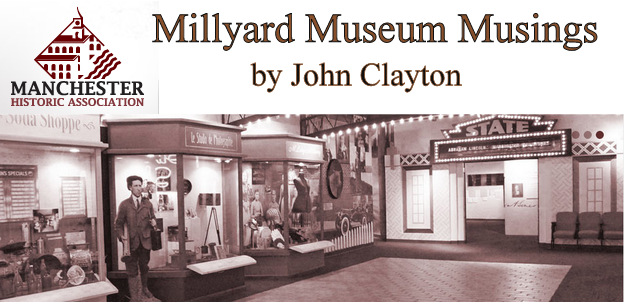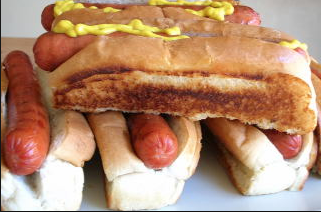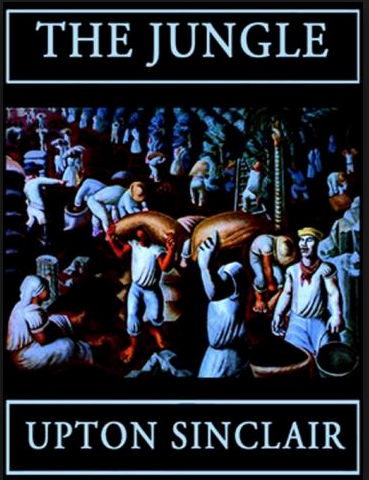
So I have recently begun doing guest appearances on “Food for Thought,” the daily radio program on WTPL-FM (The Pulse) that is hosted by my very close personal friends, Carol Lawrence and Mike Morin.
As you might guess by the title of their program, their show is about food, and since I am essentially about Manchester history, we chat about the history of food in Manchester
Anyway, a few weeks back, I went on a rant about how America’s irresponsible public health watchdogs – completely ignoring the public health hazard posed by prolonged exposure to Miley Cyrus and ”The Bachelorette” — have chosen instead to heap tons of abuse on the humble hot dog.
 If I may be frank (sorry), I’m tired of it. If they want to heap anything on hot dogs, make it onions. Or sauerkraut. Or chili.
If I may be frank (sorry), I’m tired of it. If they want to heap anything on hot dogs, make it onions. Or sauerkraut. Or chili.
Like millions of patriotic Americans, I still believe that a hot dog dressed with the obligatory complement of condiments is a meal unto itself.
I am not alone in this sentiment.
Why, the late Anna Van Loan felt the same way, and she was weaned on wienies. Then again, her maiden name was Schonland.
Never mind Oscar Mayer. Forget about Fenway Frank. In these parts, there’s only one name that’s synonymous with the hot dog and that name is Schonland.
For the better part of 100 years, the company founded by William F. Schonland produced the best wurst in Manchester. Every week at its peak, the company put out more than 40,000 pounds of processed meats ranging from head cheese (yuck!) to pickled pimento loaf – once again, I’ll pass – but nothing was as popular as the Schonland hot dog.
 To be sure, there were local rivals for the title of top dog, butchers like Max Rasp and the folks at Schricker’s Market, and let’s not forget the wondrous Weigler’s Wienie. But today, a full 35 years after Schonland’s was sold to Catelli-Habitant and 25 years after local production ceased, some people still refuse to relinquish their loyalty to the local hot dog royalty.
To be sure, there were local rivals for the title of top dog, butchers like Max Rasp and the folks at Schricker’s Market, and let’s not forget the wondrous Weigler’s Wienie. But today, a full 35 years after Schonland’s was sold to Catelli-Habitant and 25 years after local production ceased, some people still refuse to relinquish their loyalty to the local hot dog royalty.
”People come up to me and ask what I sell,” said Jim Benedetto, who was the CEO of Jim’s All-American Hot Dog Stand that once stood at Concord and Chestnut streets near the YWCA. ”When I say Schonland’s, they say ‘Give me two!”’
Why such loyalty? Why do so many consumers feel such heartfelt fondness for a frankfurter? The answer may be found in the way the Schonlands did business.
”It wasn’t like a business,” Mrs. Van Loan once told me. ”It was like a family, and that family included the customers. The whole thing was built on pride, and our lives revolved around the company because our reputation was terribly important to us.”
The Schonlands were so proud of their product, they put their name on the package. Thus, they took tremendous quality control steps, steps that went beyond the clinical and the technical.
”You know what you did to ensure quality? You ate hot dogs all day long,” said Herb Langer, a former Schonland’s president and long-time production manager. ”As the product was coming through the line, you’d always break off a piece and eat it so you were always aware of the quality. It’s a hard thing to do if you’re running 500 miles of franks through a line, but when you take a look at me, you know I tasted a lot of them.”
With a name like Herb, he was naturally sensitive to the delicate blend of spices (including ginger from Jamaica, paprika from Spain, cardamom from France and sage from Dalmatia) that gave Schonland’s hot dogs their distinctive taste. That smoky, savory flavor originated in William Schonland’s kitchen.
Friends and neighbors raved about his dogs, so he started going door-to-door, peddling his homemade sausage in Manchester’s Germantown until he opened a shop on Turner Street in 1883. As the demand grew, so did the business, which was eventually passed to his four sons – Bill, Charlie, Eddie and Anna’s father, Arthur – and later on to Herb and Eugene ”Pick” Van Loan Sr.
In hindsight, we were lucky to have them. Thanks to them, the local hot dog business was a civilized one. Out in Chicago, it was a jungle.
You don’t have to take my word for it. Just pick up a copy of ”The Jungle” by Upton Sinclair, a gruesome expose on the meat-packing industry published in 1904. (WARNING: ”The Jungle” is not for the squeamish, with squeamish being defined as someone who chews before swallowing).
 Upton Sinclair showed that slaughterhouses in Chicago tended to play fast and loose with the concept of quality, the result being that their hot dogs tended to contain various parts of animals not often associated with fine dining such as lips, nostrils, sideburns, hooves, horns, antlers, windshield wipers, lug nuts and Band-Aids, not to mention the occasional clumsy shop steward.
Upton Sinclair showed that slaughterhouses in Chicago tended to play fast and loose with the concept of quality, the result being that their hot dogs tended to contain various parts of animals not often associated with fine dining such as lips, nostrils, sideburns, hooves, horns, antlers, windshield wipers, lug nuts and Band-Aids, not to mention the occasional clumsy shop steward.
”The Jungle” didn’t solve all the problems either.
As recently as the 1960s, on those rare occasions when my mother entrusted the weekly grocery shopping to my father, he would occasionally try to sneak Brand X hot dogs into the house. We knew this even before we could read because they had a picture of Secretariat on the box.
Eating Brand X hot dogs was like buying Cracker Jacks. There was a surprise in every package. Sometimes your hot dog might contain a minor treat, such as a wedding band or a gold filling, but on really special occasions, you might find an entire tooth. These items were excellent for trading and collecting, but still, even as children, we were willing to sacrifice for Schonland’s.
Ultimately, through all manner of customer concern, government intervention and overt prayer, the rest of the hot dog industry has almost managed to match the stringent standards of the Schonlands, so now, the irresponsible medical community – completely ignoring the danger posed by prolonged exposure to eager Presidential aspirants – is getting a case of the vapors over things like nitrites and fat and sodium.
There are worse things.
After abstaining from meat several years ago – don’t worry, I’m back on the wagon now – I had been searching in vain for something to take the place of a Schonland’s hot dog, a move that led me to experiment with different brands of ”healthful” substitutes. Without question, these ”healthful” products would have killed me faster than movie house popcorn because I would have taken my own life if I had to eat them again.
You’ve got your chicken dogs and turkey dogs, both of which taste as if they may be made with beaks and feathers. Then you’ve got your vegetarian dog, which has the same texture of ground pencil erasers only less flavor, and let’s not forget the tofu hot dog. The latest model is called the Soy Boy ”Not Dog.”
I ate one – count ’em, one – and as former Presidential adviser James Carville might say, that dog don’t hunt.
So what’s a guy to do? You’ve heard about the “Dog Days of August,” right? So why not celebrate Manchester history and have a tasty treat at the same time.
Go out and cook up a batch of Schonland’s hot dogs.
The others just can’t cut the mustard.

John Clayton is Executive Director of the Manchester Historic Association. You can reach him with your historical (or existential) questions at jclayton@manchesterhistoric.org.

You’re one click away! Sign up for our free eNewsletter and never miss another thing







